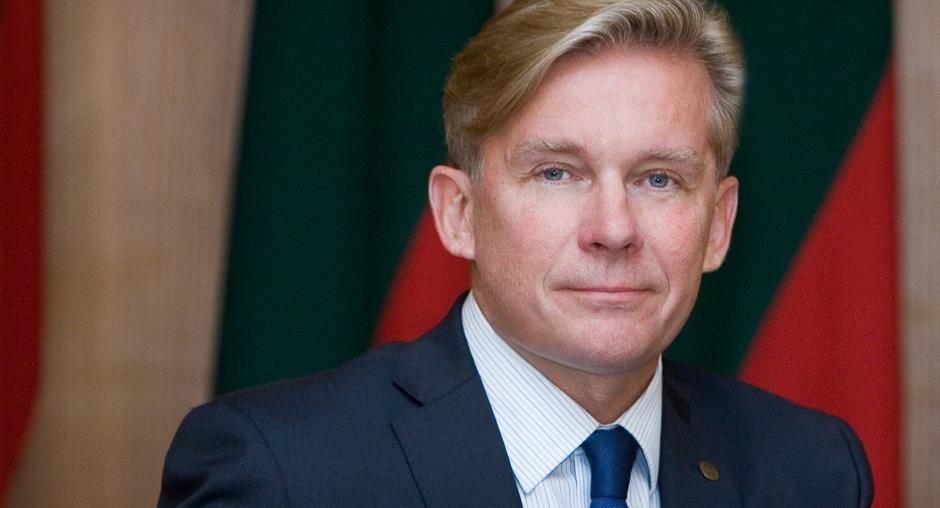Lithuania takes over OSCE Chairmanship, will focus on freedom of the media, protracted conflicts, fostering regional co-operation

VILNIUS, 1 January 2011 – Lithuania took over the Chairmanship of the Organization for Security and Co-operation in Europe today, with a focus on internal and external threats in the OSCE area, fostering democracy, human rights and fundamental freedoms, notably freedom of the media, promoting energy security in Europe and building upon synergies between regional organizations.
“We will work towards building a true security community, without dividing lines, where commitments are implemented, the use of force is unthinkable, and human rights and fundamental freedoms are fully respected,” said Audronius Ažubalis, Foreign Minister of the Republic of Lithuania, and the new Chairperson-in-Office of the OSCE. “The OSCE can do more to address old and new threats and challenges in the 21st century – both internal and those stemming from outside the OSCE area.”
He mentioned cyber-security, trafficking of people and drugs as examples of transnational threats affecting all of the OSCE.
Ažubalis stressed the Lithuanian Chairmanship’s intention to actively uphold human dimension principles: “In the OSCE, human rights and fundamental freedoms are at the core of security.”
He cited the crucial importance of media freedom and the security of journalists for the proper functioning of a democratic society.
“Lithuania, as a part of the Baltic Sea region and a member of the European Union and NATO, believes that a network of regional and sub-regional organizations, complementing each other’s activities and those of the OSCE, will be more than the sum of its parts. Synergies between such organizations are vital for building a stronger security community,” Ažubalis said.
“Regional co-operation is also vital for building long-term stability in volatile regions and may be an important contribution to addressing protracted conflicts in the OSCE area,” Ažubalis said, stressing that the advancement of the solution to protracted conflicts in Transdniestria and South Caucasus, as well as the situation in Georgia, will be a priority of the Lithuanian Chairmanship’s agenda.
“The OSCE has an important role to play, in particular through the promotion of understanding and tolerance between the societies which are parties to the conflicts, and we would like to see a more active OSCE role here.”
Ažubalis also mentioned the need to jointly develop common principles in the field of energy and said that the OSCE can promote dialogue and co-operation at the regional and cross-dimensional level in this sphere.
Ažubalis took over the Chairmanship from Kazakhstan’s Foreign Minister and State Secretary Kanat Saudabayev, whose country chaired the OSCE in 2010.
“I would like to express my gratitude to Foreign Minister Kanat Saudabayev for his dedicated work as the OSCE Chairperson-in Office towards strengthening the security in Europe as the OSCE Chairperson-in Office, and especially for holding the OSCE Summit in Astana, the first top-level meeting of the Organization in 11 years,” Ažubalis said. “I would also like to welcome Ireland and Foreign Minister Micheál Martin to the OSCE Chairmanship Troika.”
In the Astana Commemorative Declaration, participating States have tasked the Lithuanian and subsequent chairmanships of the OSCE with “organizing a follow-up process within the existing formats, taking into consideration ideas and proposals put forward by the participating States, including in the framework of the Corfu Process”.
On 13 January in Vienna the new Chairperson-in-Office will outline the Lithuanian Chairmanship’s priorities to the Permanent Council, a key OSCE decision-making body.
